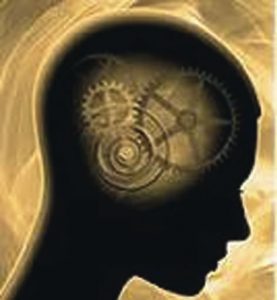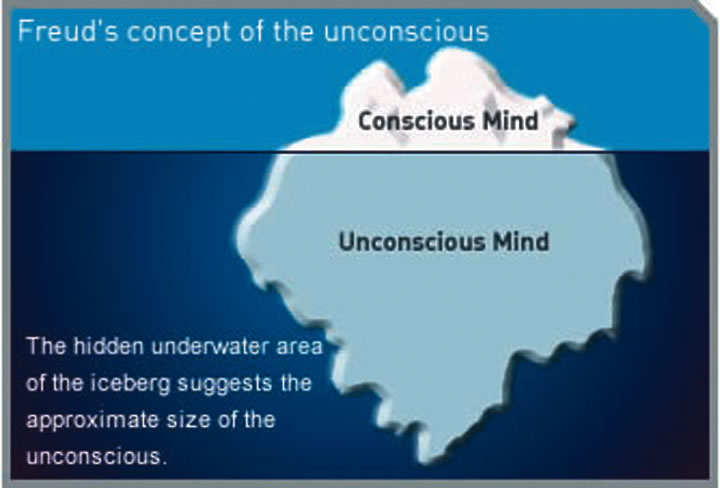Grace Builds on Nature
“Test yourselves to see that you are holding to the faith. Do you not realise that Christ is in you unless you fail to meet the test’”(2 Cor. 13, 5).
“I live now, not I, but Christ lives in me’”(Gal. 2, 20).
Very frequently in the New Testament we are told that Christ, the Spirit and the Father are within us. Indeed we often get the impression that Paul and others were consciously aware that God was in them. Most of us accept in faith that God is in us. John of the Cross tells us that God lives in us but ‘he is hidden’ and known only by faith.
This basic doctrine presents us with a huge challenge. As we saw in the last article God’s presence is dynamic. He wishes to give himself to us at ever deeper levels, but we put all kinds of blockages in his way. We ‘stifle the Spirit’ (1 Thess. 5, 19). How do we co-operate with a hidden God whose presence we only dimly perceive? We know him only in a dark manner. Can we tune up our spirit so that God can use us for his purposes? My deep-self is a mystery to myself. God dwells down in the depths of my being; yet I do not clearly perceive him. That which gives me all my dignity, which is the greatest gift I possess, cannot be known clearly by me as I reflect on my experience.
What should I do so that I will be an ‘instrument joined to God’ (Ignatius of Loyola)? Is it possible to tune up my deep-self and my spirit so that I will more effectively co-operate with the Divine Spirit? How can I water the roots of my being so that I will bring forth much fruit? 
We know a lot about the contents of the unconscious because they often manifest themselves at the level of consciousness as conscious experiences. I know that I have an intellect, a will, various habits (good and bad), inclinations, desires, likes and dislikes, various abilities etc. because all these, though unconscious at the present moment, will from time to time, manifest themselves at the level of consciousness and sometimes also externally in my speech and actions.
There are also other very basic realities, deep in my personality, that I only know by faith. Faith assures me that the Blessed Trinity lives in me. By faith I also know that I have a spiritual immortal soul. Some great philosophers (e.g. Aristotle, Bertrand Russell and others) did not recognise in human beings the presence of a spiritual immortal soul. This serves to remind us how limited the human intellect is in revealing to us our deepest identity.
How do we co-operate with a hidden God whose presence we only dimly perceive?
Beyond what we know by reflection and faith there is a great deal that we do not know about the deep self and the contents of the unconscious. How much latent power lies unused in our depths, waiting to be tapped? How do we best tune up our deep-self so that God can work in us and through us? Most of our life’s experiences, good and bad, lie buried in the unconscious. It is almost impossible to bring up to the conscious level most of our forgotten memories. Much of modern psychotherapy tries to resurrect painful experiences of the past that are buried deep in the unconscious and sometimes cause mental illness. Psychiatrists enjoy varying degrees of success in this area. Many modern psychologists and psychiatrists either do not believe in the spiritual soul or they ignore it. Once again we come up against the unfathomable mystery of the ‘deep-self’ that we know so imperfectly.
There is an axiom in spirituality, which teaches that ‘grace builds on nature’. Hence it is important, when setting out on the spiritual journey, to understand our own nature and its potential. I must take account, not only of my consciousness and its activity but I must also understand as fully as possible my unconscious. Writers struggle to find words to describe the deeper levels of one’s being. I think that the different words used complement each other. Each word serves to give a slightly different slant on the deep-self that other words do not give. Therefore, at this point I think it helpful for understanding our depths to offer the reader different words that try to describe it.
Freud speaks of the conscious and the unconscious levels of our minds or psyche.
Aquinas uses the term ‘accidents (faculties) that inhere in our substance or nature’.
Others speak of the ‘deep-self’ and ‘superficial self’.
Keating and Main often speak of the ‘centre’ and the periphery
Scripture often speaks of the ‘heart’, which, I think, is often equivalent to ‘centre’.
Paul Tillich and others speak of the ‘ground of one’s being’.
Others talk of the ‘roots of our being’. Roots differ from branches
Zen speaks of ‘Buddha nature’ because it has the capacity to bring about enlightenment, when it is properly cultivated.
The psyche or mind or self is often compared to an iceberg. We see clearly the top of the iceberg but we do not see clearly the huge mass of ice under the water. We would be greatly mistaken if we assumed that the iceberg consisted solely of the little bit of ice above the surface of the sea. In similar fashion if we pay all our attention to regulating the activities of the conscious mind and neglect what is below consciousness we are making a great mistake in our efforts to become fully human beings. If all our formation is intellectual and we ignore the formation of the spirit and deep self we are not giving ourselves a full human formation. We are not laying a proper foundation on which grace can build.
Since grace builds on nature we have a duty to become fully human so that we may become fully divine.
Since grace builds on nature we have a duty to become fully human so that we may become fully divine. We must water the roots of our being if we are to develop our full human potential. “The glory of God is a human being fully alive” (St. Irenaeus), at the level of consciousness and at the level of the deep-self. We need to cultivate root and branches; spirit, soul and body. Integral human formation must not be merely intellectual; it must also include the heart and deep-self.
To sum up: grace builds on nature. Therefore, it is desirable that we develop our full human potential. We need to integrate with conscious activity the energies of the deep-self so as to be fully alive. The principle reason for becoming more human is that God may be able to use us more effectively to accomplish his purposes in our lives.

 Entries(RSS)
Entries(RSS)